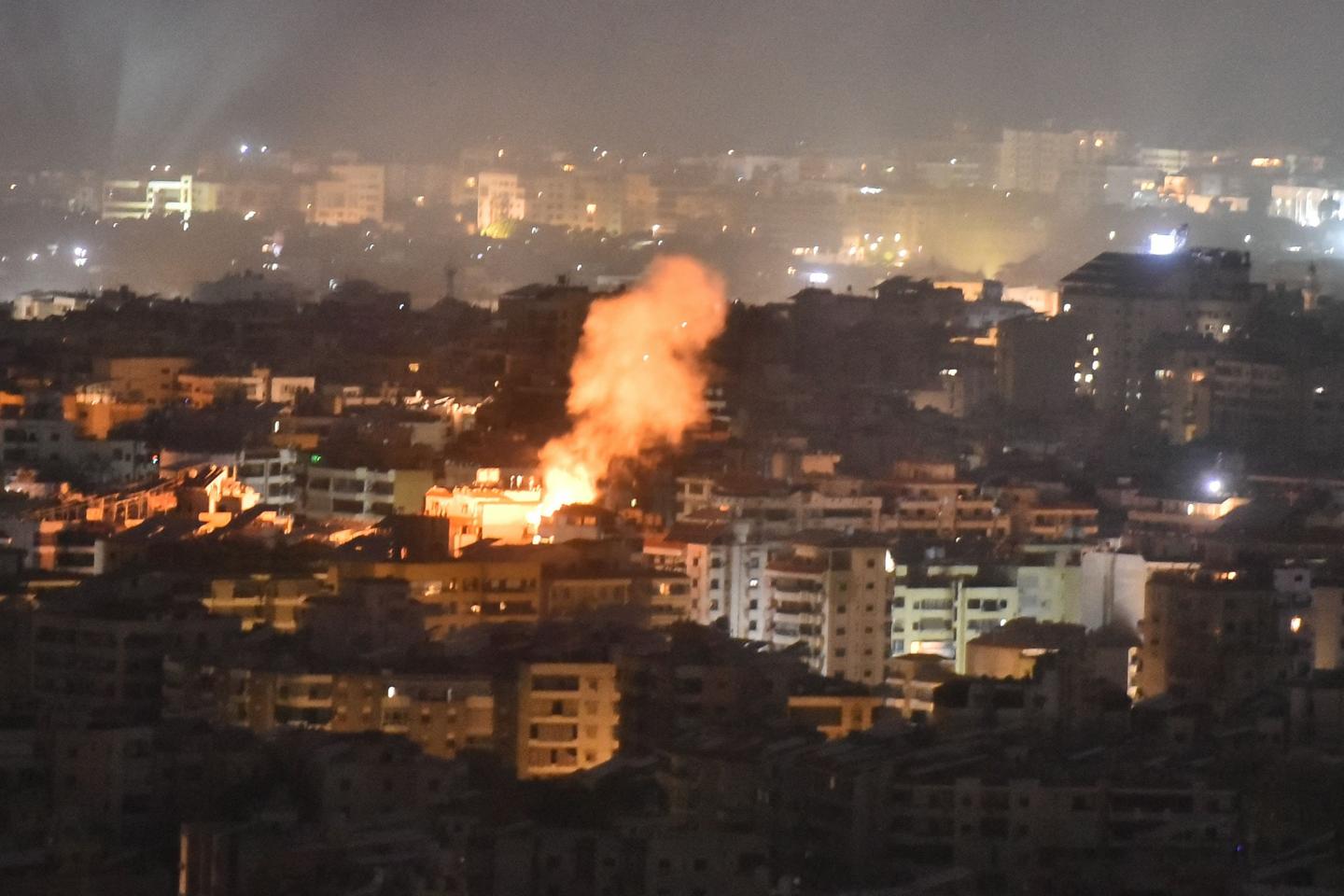


The Israeli military on Tuesday, September 1 issued a new call for residents in southern Beirut to evacuate ahead of a likely planned strike on alleged Hezbollah targets in the Lebanese armed group's bastion, then updated
"The IDF (Israeli military) is currently striking Hezbollah terror targets in Beirut," the military then updated shortly after on Wednesday.
"You are located near dangerous Hezbollah facilities, which the IDF (Israeli military) will act against with force in the near future," military spokesman Avichay Adraee said on X, specifically mentioning the area of Haret Hreik in south Beirut.
The Lebanon clash began a year ago when Hezbollah struck northern Israel in support of Hamas after the October 7 attack, which resulted in the worst massacres of Israeli civilians.
After the warning to south Beirut on Tuesday, the Israeli military said that its air force would continue to strike powerfully across the Middle East during the night after Iran attacked Israel with scores of missiles hours earlier.
"The air force continues to operate fully, and tonight it will continue to strike in the Middle East powerfully, as has been happening throughout the past year," military spokesman Rear Admiral Daniel Hagari said in a statement.
He vowed to act against Iran after it carried out a missile attack on Israel, saying Tehran was pushing the "Middle East towards escalation."
While Iran-backed groups across the region had already been drawn into the Gaza war, sparked by Palestinian group Hamas's October 7 attack on Israel, Tehran had largely refrained from direct attacks on its regional foe.
Iranian President Masoud Pezeshkian said his country had exercised its "legitimate rights" and dealt "a decisive response... to the Zionist regime's aggression".
Israel, Iraq and Jordan – which lie between Iran and Israel – closed their airspace, as did Lebanon before reopening.
US boosts forces
The escalation came after the Israeli military said early Tuesday that troops had started "targeted ground raids" in south Lebanon, across Israel's northern border.
The move came despite growing calls for de-escalation after a week of air strikes that killed hundreds in Lebanon. Lebanon's health ministry said later that the latest Israeli strikes had killed a further 55 people in Lebanon on Tuesday. Lebanon's disaster management agency said 1,873 people had been killed since Israel and Hezbollah began trading cross-border fire after the Gaza war erupted on October 7, 2023.
Iran has said Nasrallah's killing will bring about Israel's "destruction," though its foreign ministry said Monday that Tehran would not deploy any troops to confront Israel.
The Pentagon said the United States was boosting its forces in the Middle East by a "few thousand" troops.
French President Emmanuel Macron on Wednesday condemned "in the strongest possible terms" Iran's attacks against Israel, adding that France had "mobilized" its military resources in the Middle East to counter Tehran.
Macron also demanded that the Iran-backed Lebanese group Hezbollah "cease its terrorist actions against Israel and its population" and asked Israel to "put an end to their military operations as soon as possible," the Élysée Palace said in a statement, adding France would "shortly be organizing a conference in support of the Lebanese people and its institutions."
